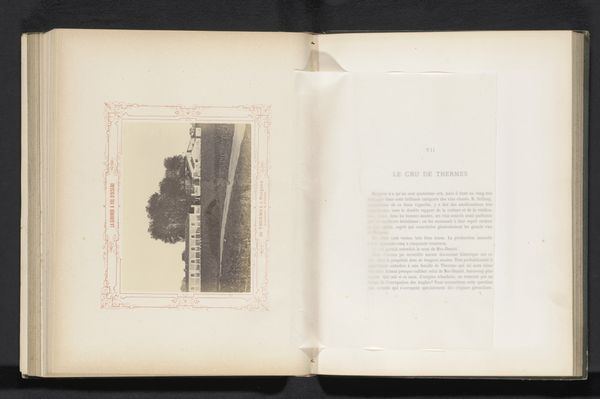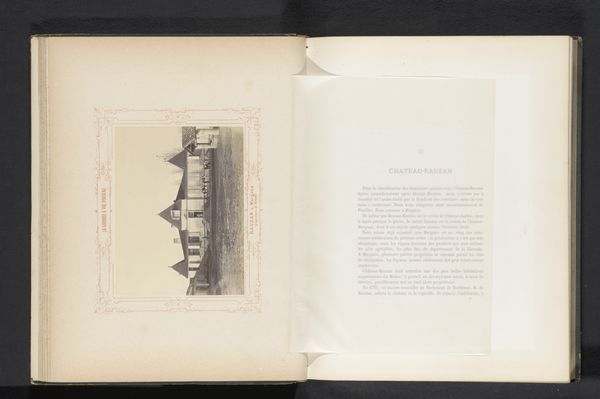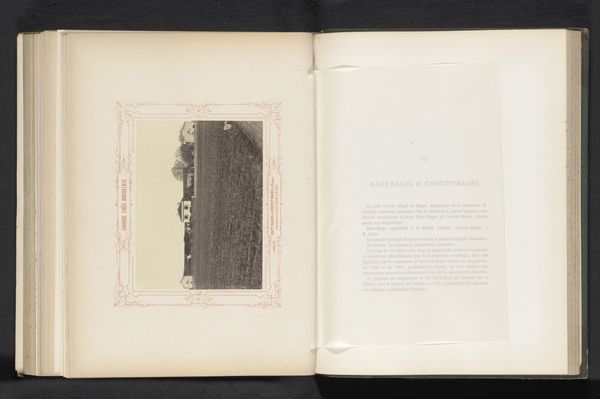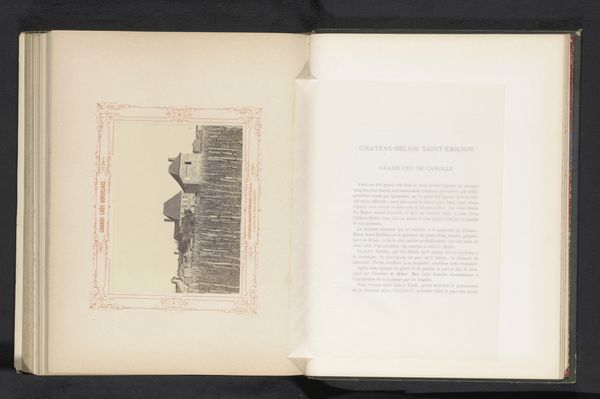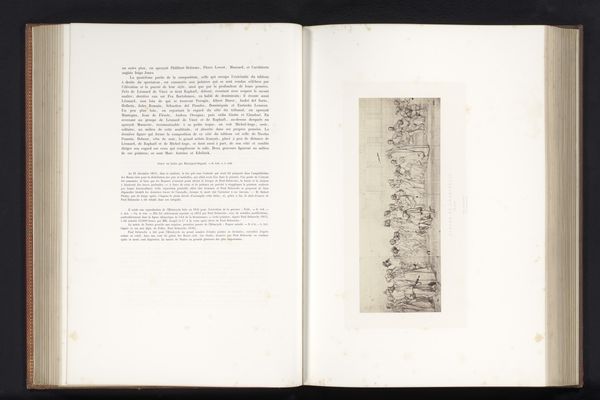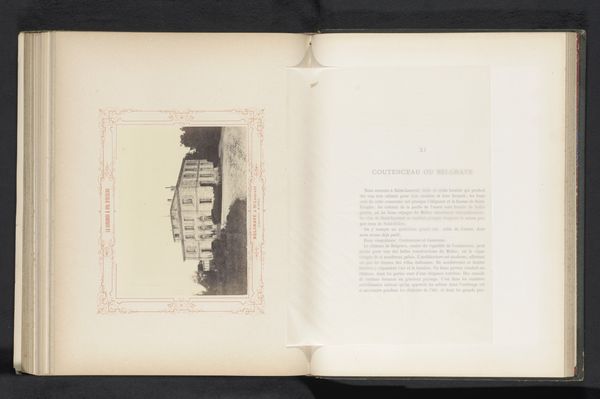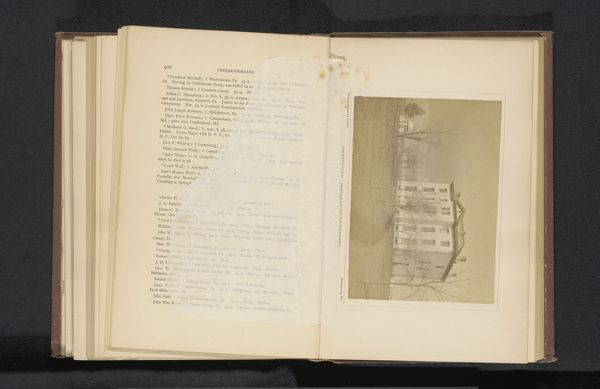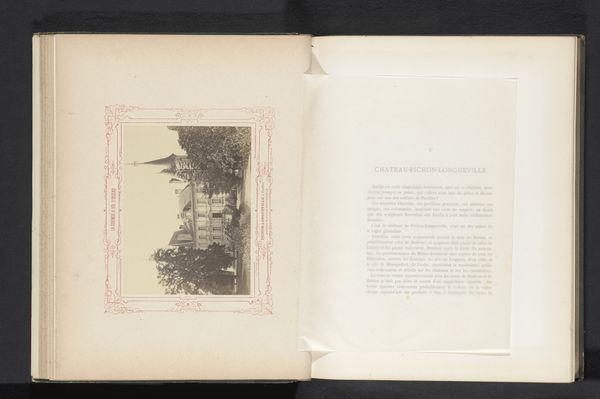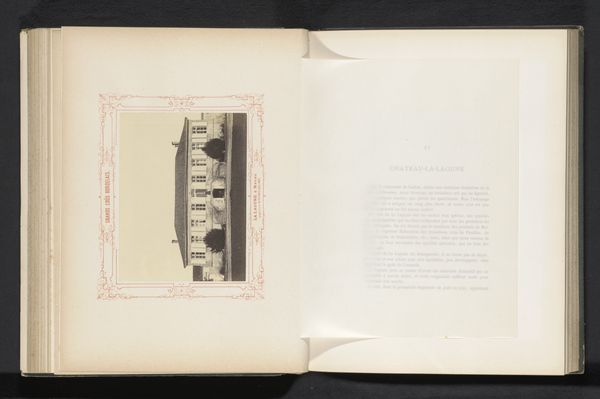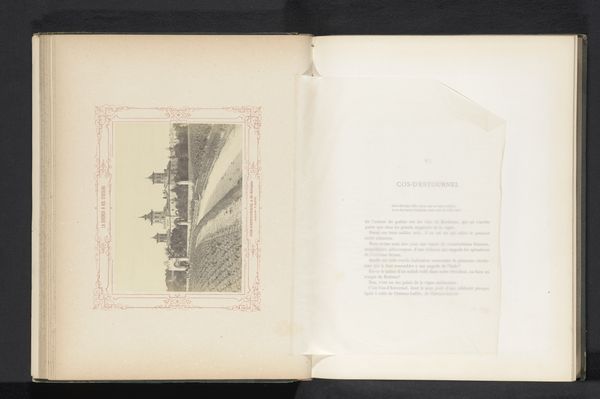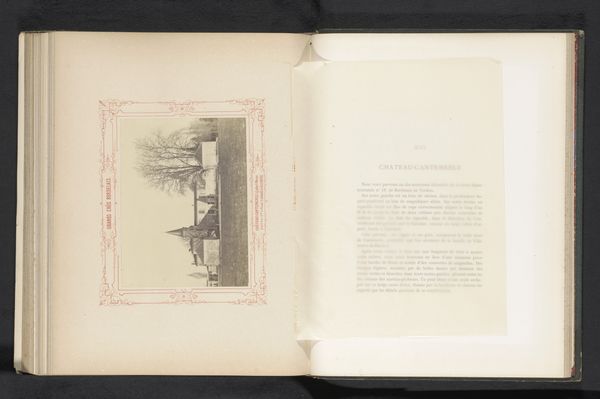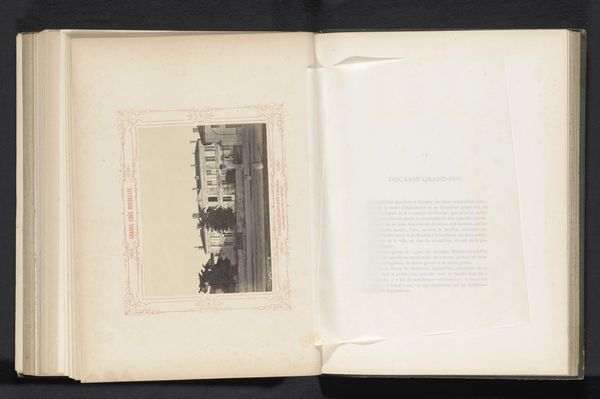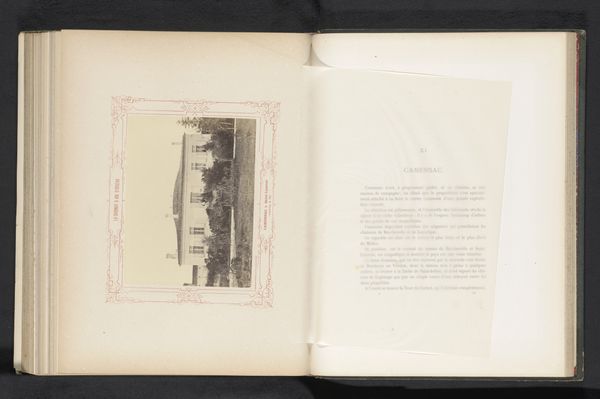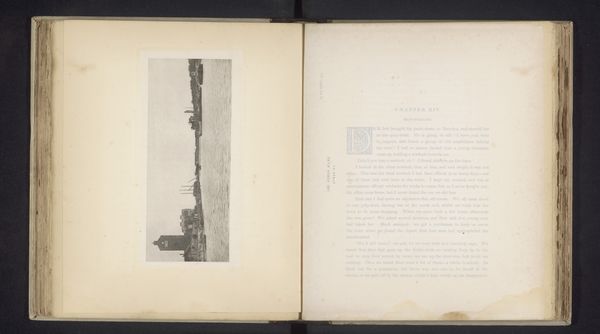
photography, albumen-print
#
aged paper
#
homemade paper
#
paper non-digital material
#
script typography
#
paperlike
#
landscape
#
personal journal design
#
paper texture
#
photography
#
personal sketchbook
#
folded paper
#
design on paper
#
albumen-print
Dimensions: height 128 mm, width 170 mm
Copyright: Rijks Museum: Open Domain
Curator: This fascinating spread presents Alfred Danflou’s albumen print, “Gezicht op Château Montrose in Saint-Estèphe, Frankrijk,” dating from before 1867. What are your initial thoughts? Editor: A study in faded grandeur. The muted tones and delicate border give it a feeling of preserved memory. It's evocative but almost ghostly. Curator: The albumen print process certainly lends that ethereal quality. These early photographs, like relics, acquired a unique symbolic aura through that look. I would note how its integration with text enhances the presentation – almost like a travel journal. Editor: Absolutely. The photograph is part of a curated visual and textual narrative about place. I see it commenting on the era’s emerging interest in tourism, capturing landscape to circulate a desired socio-cultural status of destination. Was Chateau Montrose of historical or cultural relevance back then? Curator: Undoubtedly! Places such as Chateau Montrose spoke to elite aesthetics but also resonated more widely, creating iconic touchstones that blended ideals about nobility, tradition and belonging through romantic and sublime representation of landscape. How this site, and the practices associated with it, fit into social memory – now that's a curious part of its story! Editor: Agreed, especially within a constructed setting, placed between bound pages, it signals an elite sensibility designed for public consumption and promotes aspirational ideas concerning travel, culture, and status. Did this specific print have a notable reception? Curator: Archival traces suggest that publications featuring prints such as this, helped to build and confirm national pride at the time; a sentiment often projected onto such cultural landmarks. Editor: Which is so intriguing because a picture like this invites many diverse questions. Curator: Exactly, from memory-making to nation-building, it represents so much. Editor: Yes. It reminds us to consider both the aesthetic presentation and cultural functions within these photographic legacies.
Comments
No comments
Be the first to comment and join the conversation on the ultimate creative platform.
